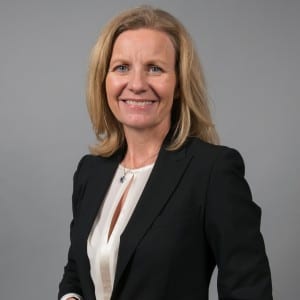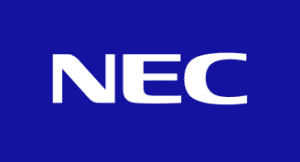TeliaSonera CCO says operators have two choices: dumb pipe or 'next gen telco'
Telecoms.com caught up with TeliaSonera’s Chief Commercial Officer (CCO), Hélène Barnekow (pictured below) at the Mobile World Congress 2015 to discuss the Swedish operator’s strategy as the industry continues to change to a more software and services driven, converged market.
March 9, 2015

Telecoms.com caught up with TeliaSonera’s Chief Commercial Officer (CCO), Hélène Barnekow (pictured below) at the Mobile World Congress 2015 to discuss the Swedish operator’s strategy as the industry continues to change to a more software and services driven, converged market.
While technology innovation is playing its role in the changing face of the industry, Barnekow says the real driver of the transformation is the customer. “The [industry] landscape is changing very quickly, and I actually try to frame that change from two angels,” she says. “One is from the customers’ point of view because it’s not that technology is driving customers, customers are driving us.
“Their expectations are increasing so quickly that it’s actually mind-boggling, and of course this is because technology has enabled them to do things they couldn’t do before so they can put higher demands on us. But their expectations on us [operators] keeping them connected all the time, seamlessly, always-on, making it easier and easier to stream, to download things are constantly increasing.”
According to Barnekow, increasing demands for data and the industry becoming more saturated with IT, as well as the emergence of IoT and M2M are blurring the lines between sectors and changing the traditional telco. She says this leaves operators with one of two choices. “I think you almost have two choices as an operator: either you say that you can be very, very efficient with pipes and that somebody else can deal with all of that and you’re going to have the lowest cost and the best quality on my pipe, transmit as much data as possible.
“Or you say you want to be a value-added provider to your customers and then you want to be very customer-focused and provide the customer with what they want. We’ve decided to be the second, and we call that the next-generation telco.”
With this in mind, TeliaSonera has put in place a two-tiered strategy, first announced at the operator’s Capital Markets Day in September. Under this strategy the telco says it focuses on enhancing the core business on one hand and on the other exploring opportunities close to the core, including IoT/M2M, music, mobile financial services, TV and security.
 While OTT partnerships play an important role for TeliaSonera, with Barnekow especially emphasising its collaboration with Spotify, the operator has also launched an OTT TV service of its own in Finland and Denmark in December, with other markets set to follow.
While OTT partnerships play an important role for TeliaSonera, with Barnekow especially emphasising its collaboration with Spotify, the operator has also launched an OTT TV service of its own in Finland and Denmark in December, with other markets set to follow.
“We’ve had a pay-TV offer in Sweden, Denmark, Finland, Estonia and Lithuania for quite some time. Originally it has of course been very much linked to our fibre business, and of course it��’s an attractive offer with 1.5 million subscribers. This is a healthy business for us and an important one, but the way in which consumers consume TV services is changing and OTT TV is definitely accelerating.”
Barnekow says she’s confident in TeliaSonera’s ability to compete against such service providers as Netflix, claiming being able to deliver local-language content is one important factor, along with subscribers being able to have the service under the same account as mobile subscription. “We have noticed that local language content for kids is especially attractive to customers,” she says.
TeliaSonera operates in the Nordics and Baltics, as well as in the emerging Eurasian region (Kazakhstan, Azerbaijan, Georgia, Moldova, Tajikistan, Uzbekistan and Nepal), and although none of these markets have yet fully embraced convergent offerings, Barnekow says this is very close to happening in the mature markets in Europe.
“These [Spotify and the OTT TV offer] are the first steps we’ve taken [towards convergence] and we will build on that. What we do believe is that convergence becomes very, very important part of our strategy of our core offering. Especially for the more mature markets like Sweden and Finland, but also Estonia which is very much at the fore-front. We are working on it [convergent offering] as we speak, we haven’t launched it yet but we’re very close to.”
Telecoms.com’s news coverage of Mobile World Congress 2015 is sponsored by NEC.

NEC brings together and integrates technology and expertise to create the ICT-enabled society of tomorrow. We collaborate closely with partners and customers around the world, orchestrating each project to ensure all its parts are fine-tuned to local needs. Every day, our innovative solutions for society contribute to greater safety, security, efficiency and equality, and enable people to live brighter lives. Read more…

About the Author
You May Also Like




.png?width=300&auto=webp&quality=80&disable=upscale)





.png?width=300&auto=webp&quality=80&disable=upscale)


_1.jpg?width=300&auto=webp&quality=80&disable=upscale)